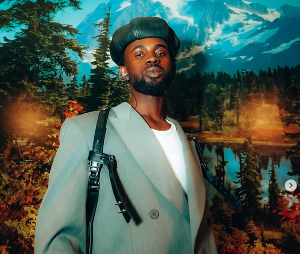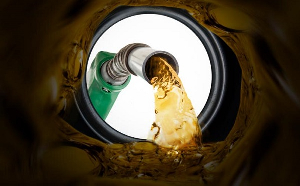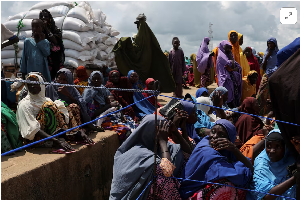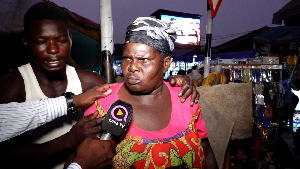and exposes corruption in Ghana and the UK
Former Deputy British High Commissioner to Ghana attacks current High Commisioner and exposes corruption in Ghana and the UK .
Craig Murray a former Deputy High Commissioner to Ghana who is also a writer and broadcaster and currently a human rights activist, Rector of the University of Dundee and an Honorary Research Fellow at the University of Lancaster School of Law has done the unprecedented.
He has taken on his fellow diplomat, the current High Commissioner to Ghana-Mr. Nick Wescott in a scathing article published on his website Ghananewslink.com reproduces Mr. Craig Murray's article unedited. Please read on:
The UK and Corruption in Ghana
THE BRITISH GOVERNMENT ARE THE BIGGEST HYPOCRITES British High Commissioner Nick Westcott is not afraid to step in to controversy. Having boldly told us that Vodafone did nothing wrong in their acquisition of Ghana Telecom, he now lectures Ghana that incoming governments must respect contracts entered into by the outgoing government.
Of course, that is true. As a general point, it is a simple statement of the legal position.
But we all know that Dr Westcott did not mean it as a general point. He meant that investigations into contracts including Kosmos and Vodafone must be stopped. Otherwise, he warned, investor confidence would be damaged – a warning that foreigners would take their dollars elsewhere. But what is the logic of this position? No government may question any contract entered into by a predecessor, no matter how corruptly? That if you are a dreadfully corrupt foreign businessman, who has bribed a minister, you only have to hang on until the government changes, and then you cannot be investigated? Plainly this is a nonsense.
The fact is that, as detailed in a series of articles in the Financial Times of London, there are a whole number of questions about the Kosmos deal which give experienced observers great cause for concern.
One which particularly worries me is how, on the best oilfield in Ghana, Kosmos were able to get a royalty rate of only 5%, when the average on other fields is over 11%. There are suggestions that partners from EO were active on the Ghanaian government side of the negotiation. There are also credible stories of Kosmos handing EO millions of dollars in cash notes for “marketing and publicity”.
Is Ghana forbidden from investigation because the government has changed? No, and they must not be bullied out of it by the British, Americans, IMF or World Bank. Those will always back wealthy Western companies against a developing African nation.
The Vodafone deal suffered – at the very least – from a lack of transparency and a lack of a level playing field for others – including France Telecom – who wished to compete. The final sales price was definitely too cheap.
I would like to know how Ghana Airways' invaluable routes were awarded to GIA - a bunch of obscure and inexperienced investors who came only fourth in the official assessment of bids. The result has been the almost total disappearance of Ghana's whole aviation industry.
I would like to know how industrial development funds were given to a network of companies the ultimate ownership of which traced back to the Minister of Industry.
The British High Commissioner has the problem entirely backwards. It is not that the government is not honouring existing contracts. I am Chairman of several companies, including Atholl Energy. Atholl had a contract with the NPP government which has been honoured by the NDC government, because we carry our our work diligently and honestly.
The problem is that where contracts are not honest, action has not been fast enough or decisive enough to root out corruption.
Two of the worst examples are in the energy sector. Let us look at the case of another British company, Zakhem International Ltd. They are building the Kpone Power Project for VRA.
VRA bought the turbines from the manufacturer, Alsthom for US $70 million. They then paid Zakhem US $80 million upfront to install them and provide the ancillary equipment.
After three years, what do Ghanaian taxpayers have to show for their US $150 million? Absolutely nothing. An empty field at Kpone, surrounded by Ghana's longest concrete wall so the Ghanaian public cannot see that their money has been stolen.
What is happening about it? Nothing, because Zakhem and their Ghanaian partners have stolen enough money to bribe all the officials involved. They are now claiming around town that the new government is also “In their pocket”.
Most of the $80 million has vanished forever, while the $70 million turbines are now badly damaged by disuse.
Or look at Balkan Energy. They claimed to have spent US $100 million on refurbishing the Osagyefo barge, at a time when they had really spent less than US10 million.
Under an astonishingly corrupt contract, Balkan are to lease the barge for $10 million per year, from the government of Ghana, but then charge Ghana over $40 million per year for its use as a “Capacity charge”. They will in addition charge the government of Ghana for the fuel, and make a profit on that too.
It is as if I rented your car from you for 100 Ghana cedis a month, then rented it back to you for 500 Ghana cedis a month plus charging you a premium on all the petrol you use.
Balkan stand to make a total of about $1.5 billion dollars in profit from the people of Ghana from this terrible deal. It is the most corrupt contract I have ever seen. It is astonishing that a country like Ghana would enter into a contract with Balkan, whose owner, Gene E Phillips, has stood trial as a gangster in the United States.
These are not crimes without a victim. Everyone who pays any VAT or other tax in Ghana is putting money into the pockets of these disgraceful conmen. Most of the taxpayers of Ghana are very poor, and the money is being taken by people who are very rich.
That is why I am speaking out. I am not supporting any political party. I am supporting the ordinary people of Ghana.
I first spoke out about corruption in Ghana back in 1999, when I was Deputy High Commissioner there. It caused a sensation in the Ghanaian media at the time. But people do not know that I was nearly sacked by the British government as a result.
The British government did not object at all to my attacking corruption in Ghana. The reason I was nearly sacked was because I said “Sadly some British companies have been involved in this corruption”. I was carpeted by the British government and told I must never mention British companies' corruption.
At the time I was thinking of the British company International Generics Ltd and their involvement in scams over the La Palm and Coco Palm hotels.
The hypocrisy of the British government in defending corrupt British companies was most famously seen when Tony Blair ordered an end to a prosecution of the arms company BAE over massive bribes they had paid in Saudi Arabia. Blair declared that prosecuting BAE was not “In the national interest”.
Last week BAE again escaped criminal prosecution and were allowed to pay a fine instead, for corruption in Africa including Tanzania. So Nick Westcott is only continuing a British hypocritical tradition of condemning corruption, unless it is British corruption.
The truth is that sadly there was a major increase in corruption in Ghana especially in 2007 and 2008. That was a major reason why the Ghanaian people voted to change their government. But so far there is little indication that the new government has done much to root out the corruption.
The danger in this is that ordinary people will become disillusioned with the political process.Ghanaians are not stupid. People know who stole money, and they see them swanning around town in their fancy cars, unashamedly living the highlife. This can corrupt society. Young people can easily draw the conclusion that the way to make money is to be a corrupt politician or a drugs dealer.
The further danger is that, just like in Nigeria, they conclude that all the politicians of all the parties are into the corruption, and that is why everyone gets away with it.
I did not used to think that was true in Ghana, but I really am beginning to wonder, unless we see some effective action soon. So rather than protecting the corrupt, the British High Commissioner should be offering help and assistance actively to attack corruption. That includes corruption by British companies.
He should also remember that, with oil revenues within touching distance, Ghana will soon have her own investment funds and no longer be so dependent on foreign investors. It is not for the colonial master to kick Ghana. The boot will soon be on the other foot.
General News of Friday, 12 February 2010
Source: ghananewslink.com
Ex-Diplomat to Ghana attacks current High Commisioner
Entertainment











